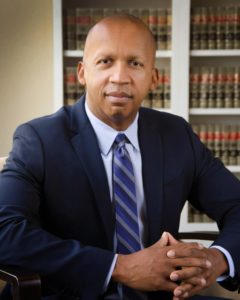
Love changes places.
Unfortunately, so does hate.
I would argue that those emotions are the only two things that leave a lasting impact.
The rest is ephemeral.
Love inspires and motivates.
Hate tears down and destroys.
Love fixes a lot of things but sometimes even love can’t fix what hate destroys. Sometimes the damage is permanent.
That thought keeps flashing through my mind as I watch the slow motion destruction of Old School Square and its 32 year history.
I believe the 3-2 vote to evict the non-profit —-without a conversation, without public input and without regard to the human toll of the decision —-was driven by personality conflicts between the powers that be and some of the citizens who created and operated Old School Square.
The conflict is telling because if you were to look at a list of board members, volunteers, donors and staff past and present, you would be looking at a who’s who of Delray civic leaders. These are the people who have done so much for Delray. Why? Because they love this city.
That they can be evicted without a conversation or a plan shared with the community is a shocking and deeply disturbing development.
We ought to be better than this.
We need to be be better than this.
And I believe we are better than this, as evidenced by over 10,000 signatures on a petition protesting the eviction and the continuing anger we are seeing in the community over this decision.
People are deeply unhappy with the turn of events and the complete lack of process and input from the community before the vote.
They are also deeply disturbed by the human toll of this decision—events cancelled, private parties cancelled, jobs lost and the utter disrespect shown to donors, volunteers and founder Frances Bourque who deserves so much better.
If allowed to stand, this decision will be remembered for two reasons: none of them good.
First, the destruction of a beloved community institution and second the lack of humanity shown to people who have earned our respect and consideration.
If we are to be a community that values people and contributions, this kind of decision and the way it was made cannot stand.
But before we dive in further, there are a few misconceptions surrounding this decision that need to be cleared up.
First is that Old School Square has refused to meet with the city. That is categorically false. OSS has been pleading for a meeting.
The second misconception is that the performance of the organization deserved the death penalty and that a new management company is urgently needed.
OSS is a non profit with operational responsibilities. It is not a management company.
There’s a difference.
The non profit is the secret sauce allowing the community to connect to the institution. Donors give to community based non- profits run by people they know, love and trust. There’s that word again—love.
Over the years, donors have supported OSS because they know the people associated with the non- profit were dedicated to the mission which was serving Delray Beach.
There have been operational deficiencies–OSS has never denied that. But instead of working with the organization, a majority of the city commission has decided to work over the organization. That’s a mistake, with consequences far beyond the loss of a beloved community institution.
And while we are discussing operational deficiencies let’s not forget that City Hall has been a mess for a while now with a steady parade of City Managers, department heads and rank and file staff leaving or being shown the door, often for dubious reasons. The city is plagued by water issues, the golf course, once a jewel has become a cow pasture, and we have gone from a community that once prized unity to a place that has made an art out of division and dysfunction.
OSS is not above accountability, no organization is, but this city is in no position to lecture anyone at this point in time. The difference is OSS stands ready to listen to constructive criticism while City Hall continues to fiddle while Rome burns.
Over the course of this mess, OSS has been hit with a raft of accusations and loaded words such as “corrupt”, “incompetent” and “non-compliant.”
The organization has acknowledged its shortcomings but it has also pushed back against the false accusations.
And if there is evidence of malfeasance bring it. Let’s charge those who broke the law. But innuendo is not good enough. Produce the evidence if you have it.
Old School Square’s defense of its record has led to more recriminations as if the only proper response to the beating is the Animal House hazing scene in which the pledge is paddled and says “thank you sir, may I have another.”
Sorry, but in the real world, when you are bullied you get to push back.
I believe that the OSS eviction is a politically motivated hit. I’m not alone in that thought.
It’s part of a campaign to erase and cancel the past.
We are developing a bad habit in our country and in our city. If we repeat a lie over and over again we hope it eventually becomes the truth.
OSS is not corrupt or incompetent. It was never designed to be a profit center. It was tasked with lowering costs so it could be accessible to the community. It met that mission and more.
Its retired director Joe Gillie did not receive a “golden parachute”, he received a modest four year gift paid for by private donors because after 23 years or dedicated service to our city he had no retirement plan. The organization didn’t offer one. It should have and he was deserving because Mr. Gillie did a fine job and helped to create millions of dollars worth of value over the years. He is THE reason the city won three All America City Awards which helped Delray achieve a national profile while building civic pride. Pride: remember that quaint notion?
Commission’s get in trouble when things become personal; when it ceases to be about the community and the future; when it becomes about personalities.
Cities risk it all when decisions are driven by personal vendettas not sound analysis. They also risk a ton when empathy and humanity exit the building.
When this ugliness happens–when love gives way to anger— we risk a spiral. There are punches and counterpunches and pretty soon cuts begin to open, blood begins to flow.
We are either there now, or dangerously close. We need the adults in the community to reel us back in.
We need to stop.
But it can only stop when both sides resolve to refrain from hostilities long enough to sort through the issues. And there are many.
Leaders know how to do this. Failures don’t.








